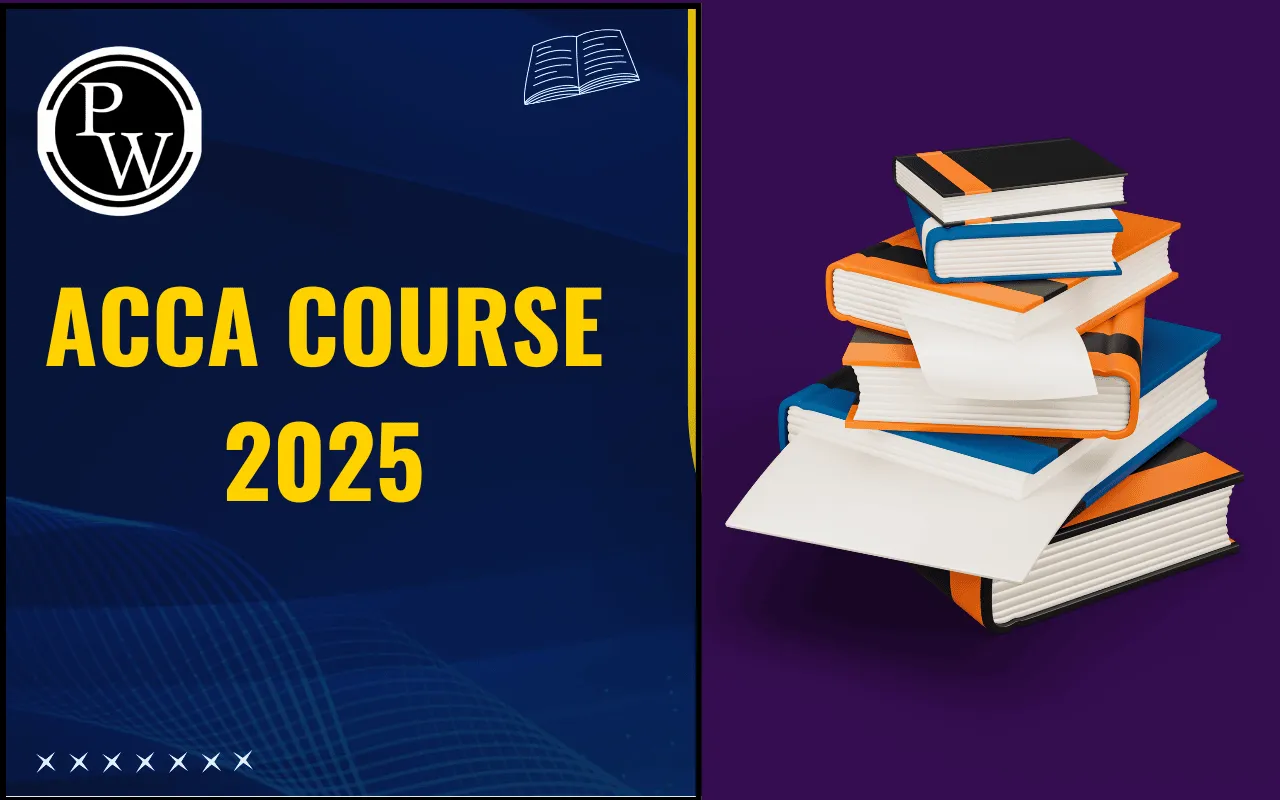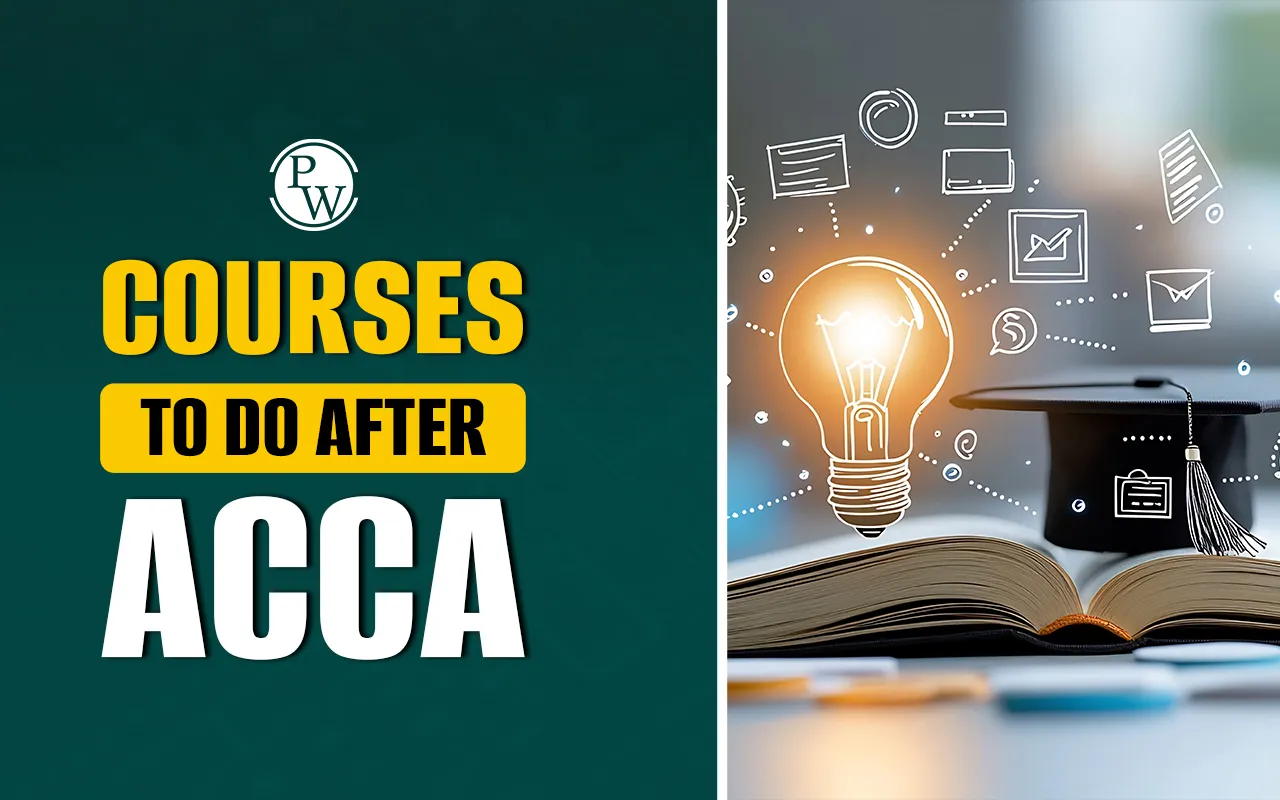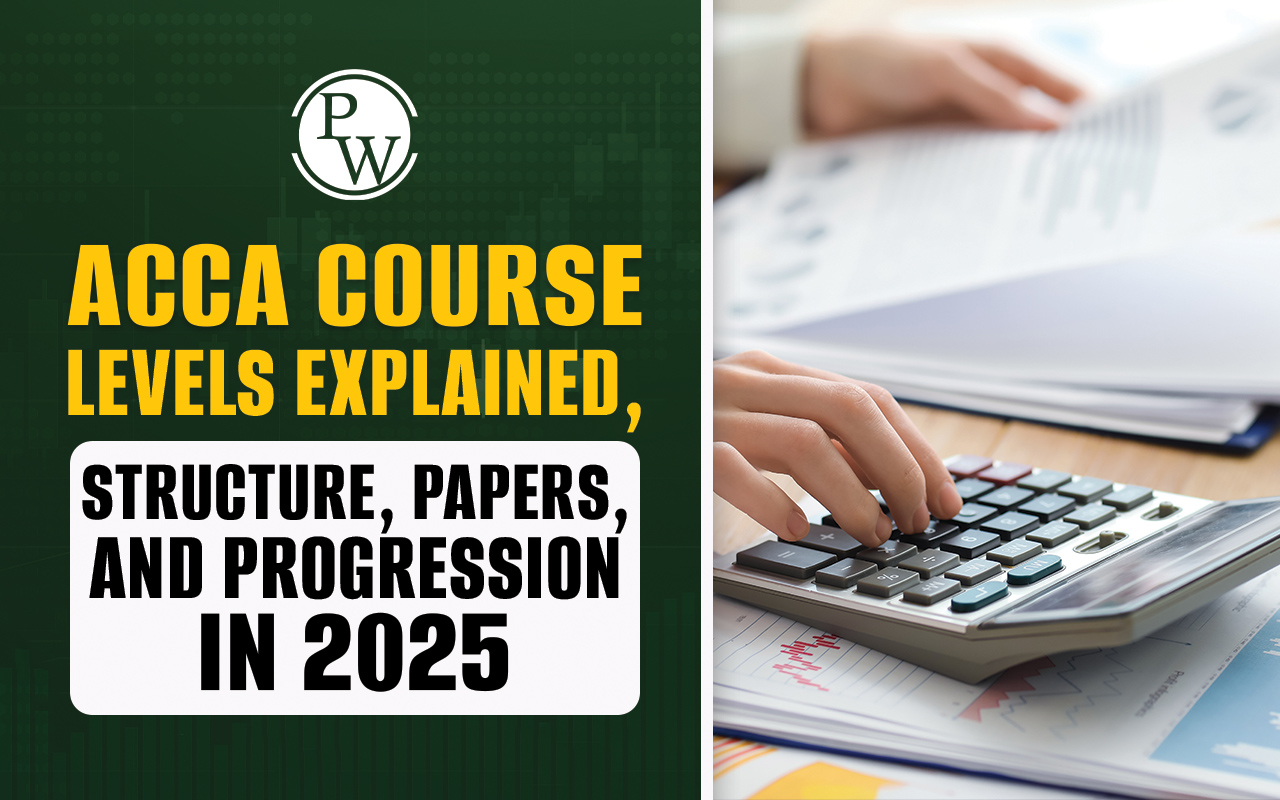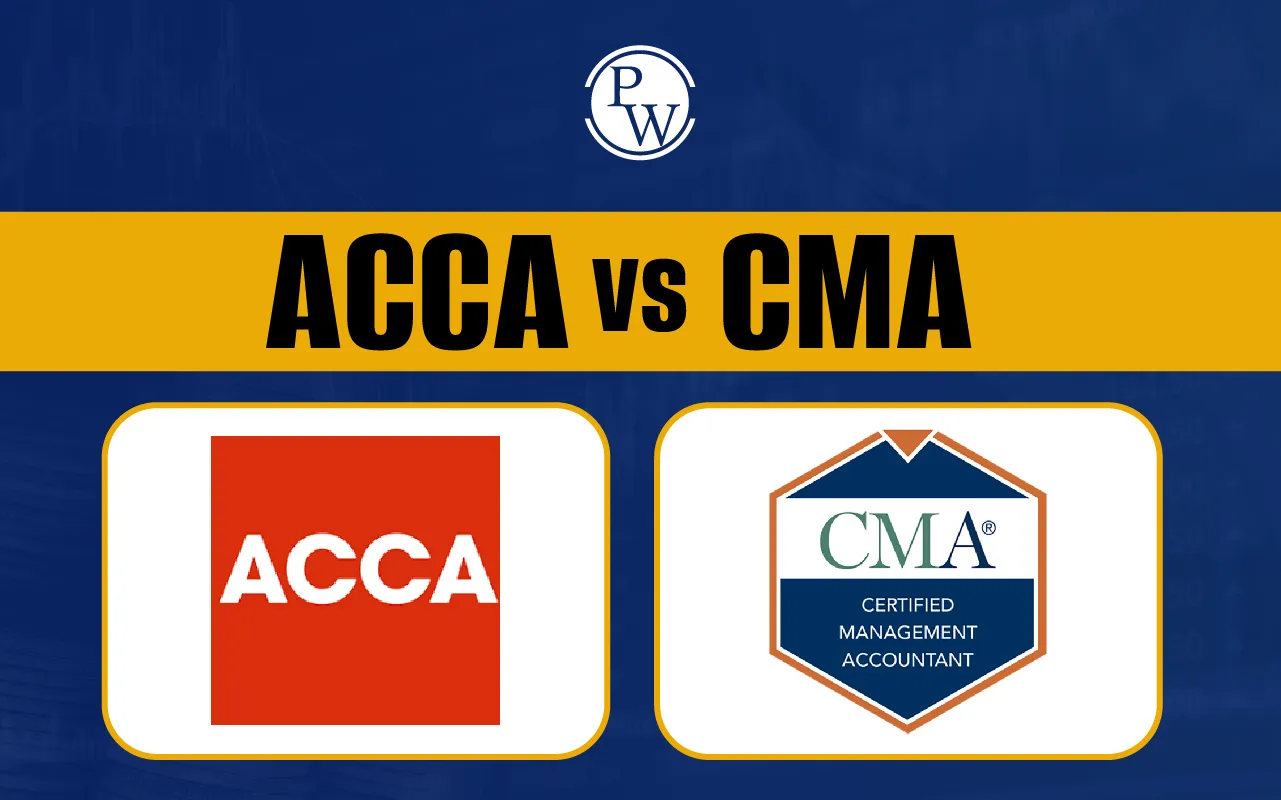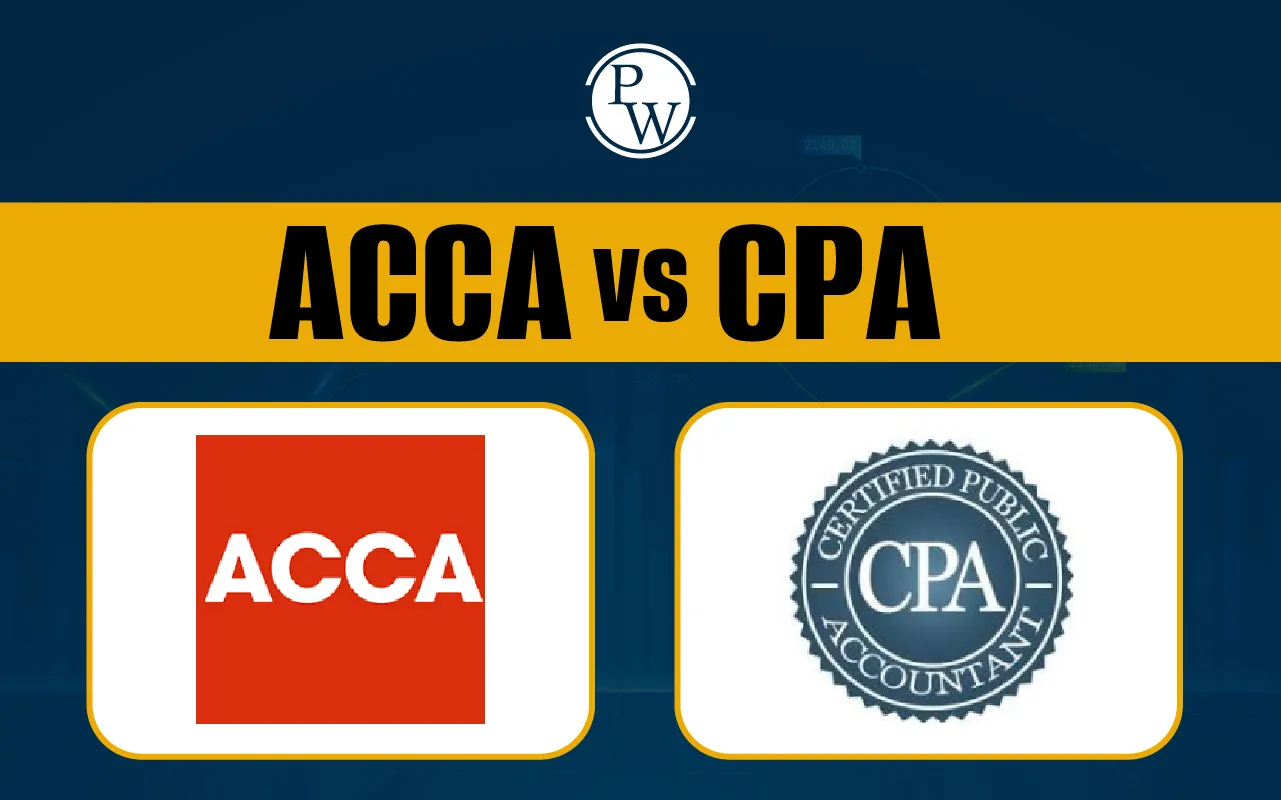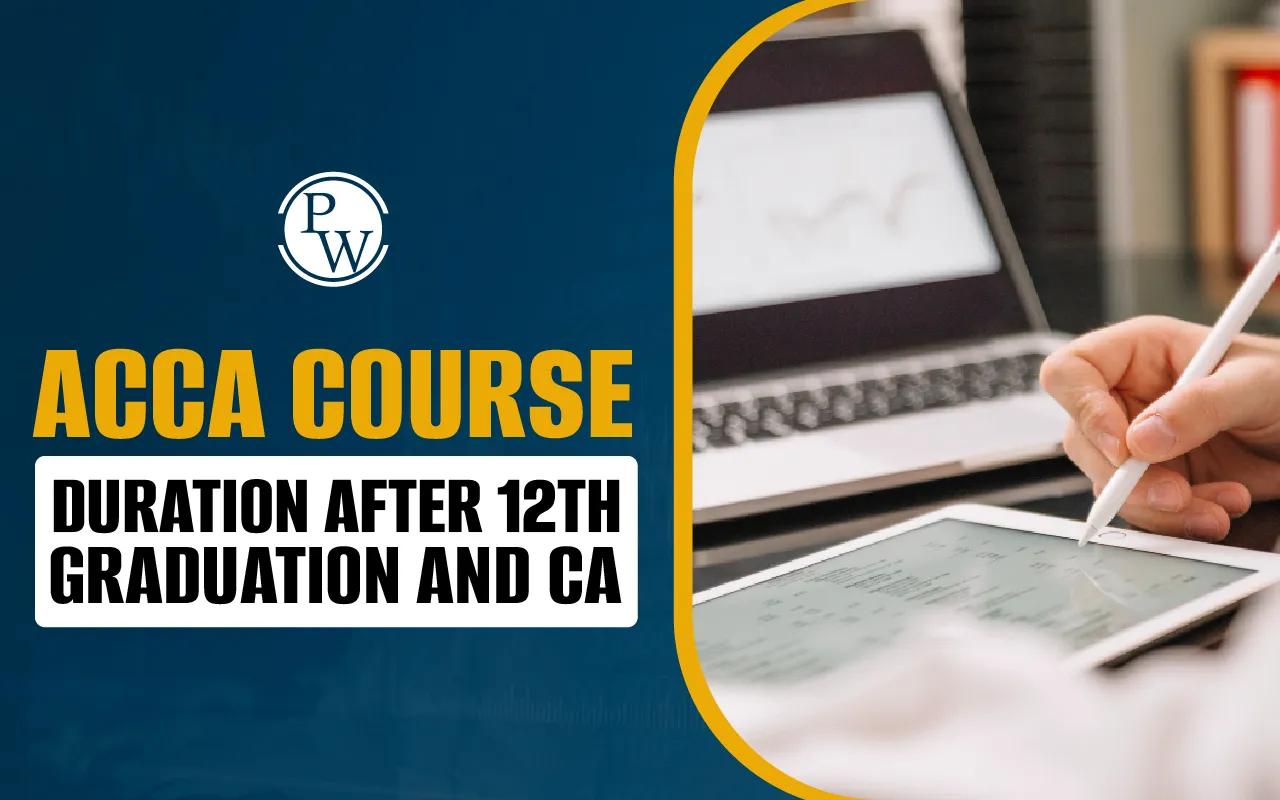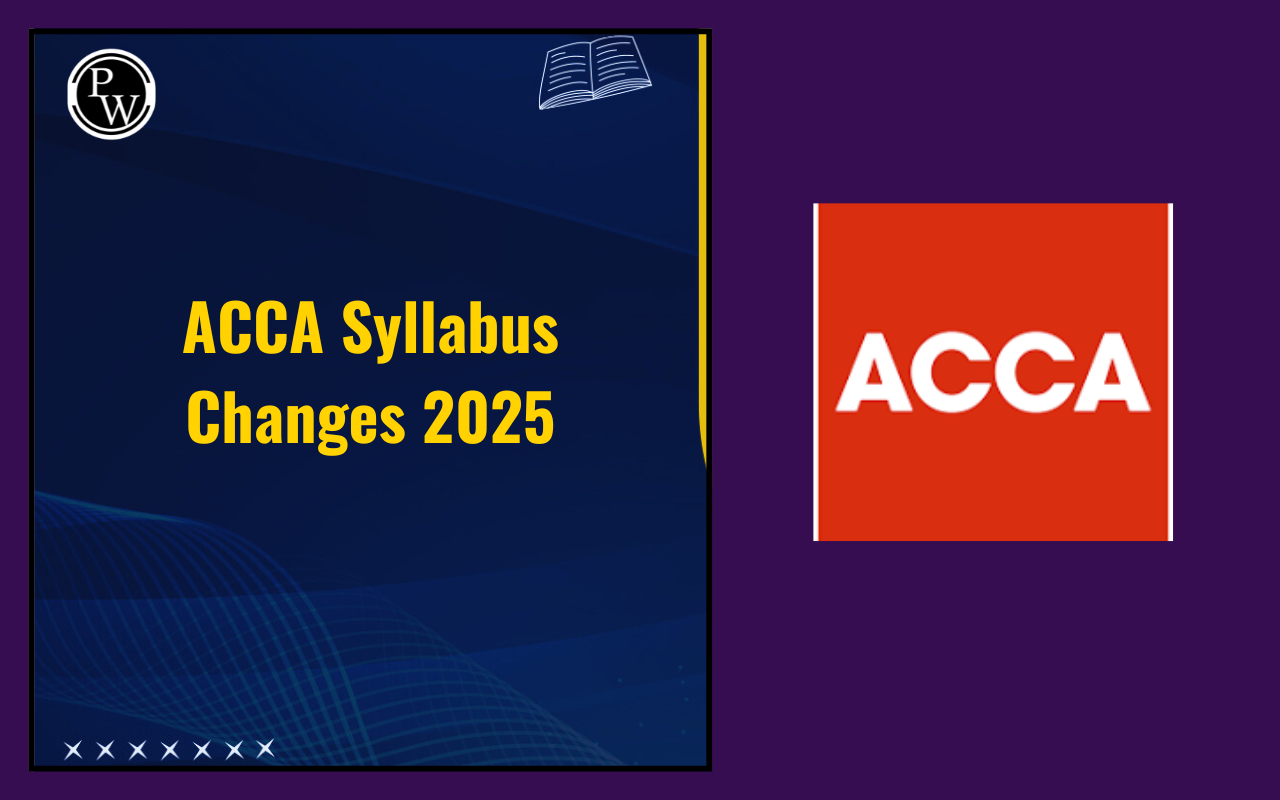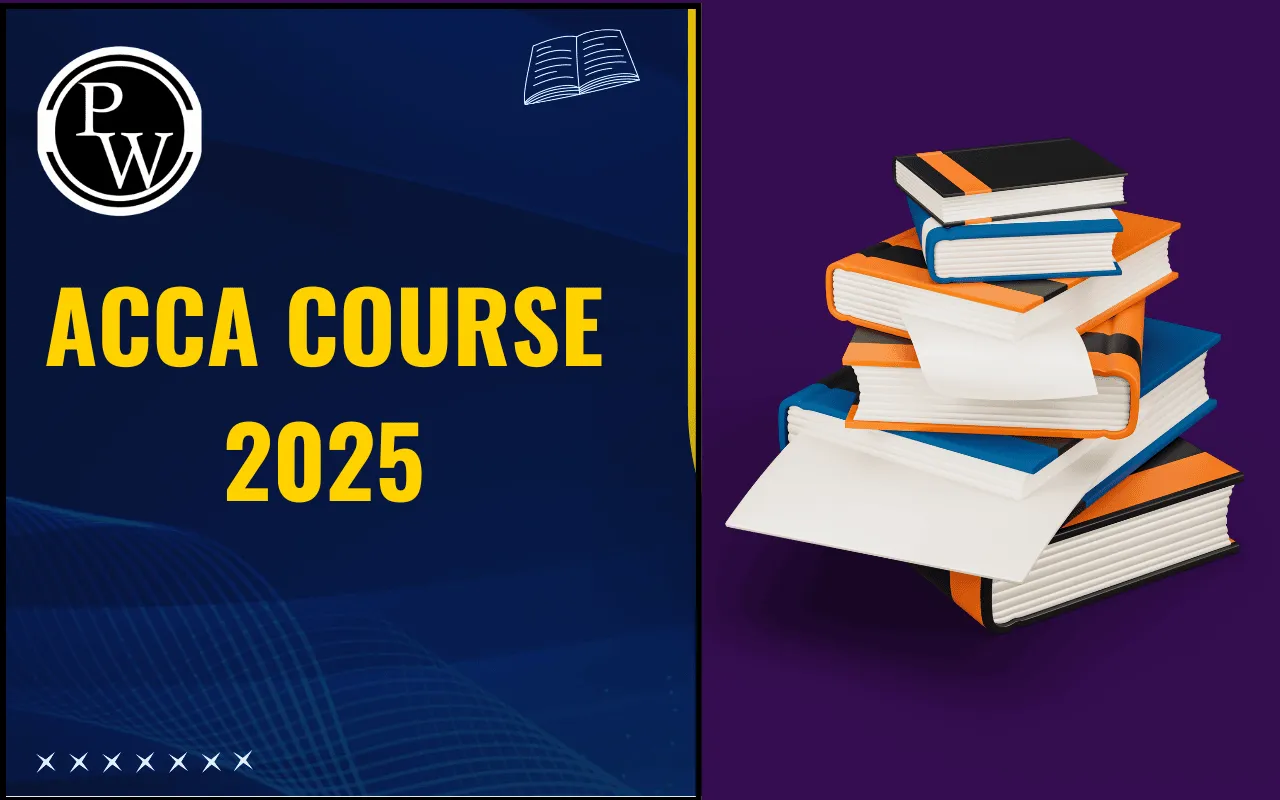
ACCA Course 2025: Association of Chartered Certified Accountants (ACCA) certification is a popular professional qualification in finance and accounting. It provides job opportunities and is suitable for those interested in accounting, finance, or business. The ACCA course will provide students the skills and information required for a successful accounting and finance profession in 2025, focusing on industry value, ethics, and practical skills. The three primary levels of the course are Strategic Professional, Applied Knowledge, and Applied Skills.
ACCA Course 2025 Overview
Aspiring accountants and financial professionals can get the globally recognized ACCA (Association of Chartered Certified Accountants) qualification in 2025. Students are prepared for positions in different financial professions by its emphasis on industry relevance, ethics, and practical skills. An overview of the ACCA Course 2025 is provided below:
| ACCA Course 2025 Overview | |
| Full Form | Association of Certified Chartered Accountants |
| Course Duration | 1-7 years |
| Course Fees | INR 28,000 to INR 2,60,000 Learn More: |
| Exams | 13 Exams |
| Levels | 3 (Applied Knowledge, Applied Skills, Strategic Professional) |
| Frequency of Exam | Exams are conducted quarterly (March, June, September, and December) |
| Eligibility Criteria | 10+2 with a minimum 65% aggregate in Maths/Accounts and English, and 50% in other subjects |
| Career Prospects | Accountants, Auditors, Finance Managers, Business Analysts, and experts |
| Exam Formate | Computer-based exams for all levels |
| Average Salary | INR 3.5 to 4 LPA |
| ACCA Course Fees | 28,000 INR- 2,60,000 INR |
| Recruiters | PwC, EY, Deloitte, KPMG, Grant Thornton |
ACCA Syllabus 2025
ACCA Syllabus 2025 is divided into three levels: knowledge level, skill level, and professional. The subjects covered in the ACCA syllabus are broad and include company management, accounting, taxes, and finance. It covers different topics, including corporate and business law, taxation, performance management, financial reporting, audit and assurance, business and technology, management accounting, financial accounting, and more. To achieve successful preparation for the ACCA 2025 exam, candidates should become proficient in each of these subjects.
ACCA Paper Structure
ACCA Paper structure is divided into three levels, with different subjects covered at each level. The three levels of the ACCA exam pattern are Strategic Professional, Applied Knowledge, and Applied Skills. The ACCA Exam Pattern 2025 is given below:
| ACCA Paper Structure | ||||
| Level | Number of Papers | Subjects | Exam Duration | Format |
| Applied Knowledge | 3 |
|
2 hours | Objective (MCQ-based) |
| Applied Skills | 6 |
|
3 hours | Objective + Written (Mix of MCQs and essays) |
| Strategic Professional | 4 (2 Essentials, 2 Options) |
|
3-4 hours | Written (Case studies, essays, professional reports |
ACCA Modules 2025
Ethics and Professional Skills Module of the ACCA (Association of Chartered Certified Accountants) certification is generally referred to as EPSM. This online module is intended to provide students with the professional and ethical skills they need to pursue professions in finance and accounting. EPSM is not required for associate status, but it is essential for acquiring full ACCA membership.
ACCA Subjects list
A recognized course in chartered accounting, usually provided by the ICAI, must be completed to enroll in an ACCA course. Previous theoretical and practical experience could be used as a strong basis for ACCA courses, which are certification-based. To get the ACCA certificate, individuals who have never had a CA certification must clear 14 exams. The three levels of the exams are Strategic Professional Level, Applied Knowledge Level, and Applied Skills Level. For more specific details, see the table below.
| ACCA Subjects List | ||
| Applied Knowledge | Applied Skills | Strategic Professional |
| Paper F1 – Business and Technology (BT) | Paper F4 – Corporate and Business Law (LW) | Paper P1 –Strategic Business Leader (SBL) |
| Paper F2 – Management Accounting (MA) | Paper F5 – Performance Management (PM) | Paper P2 – Strategic Business Reporting (SBR) |
| Paper F3 – Financial Accounting (FA) | Paper F6 – Taxation (TX) | Paper P4 – Advanced Financial Management (AFM) |
| Paper F7 – Financial Reporting (FR) | Paper P5 – Advanced Performance Management (APM) | |
| Paper F8: Assurance and Audit (AA) | Paper P6 – Advanced Taxation (ATX) | |
| Paper F9: Financial Management (FM) | ||
Why Study the ACCA Course?
Students get multiple benefits from completing the ACCA course. The following are the main benefits:
-
Students may access opportunities in any of these countries with an internationally recognized certification.
-
The demand for ACCA is strong among MNCs. Students get the chance to work in managerial positions. It is one of the most accessible methods to get an international professional qualification.
-
ACCA provides qualified guidance through 100 locations globally, although it is governed by the United Kingdom. The course is applicable in all countries since it also covers tax and local law teaching.
-
After completing the course, learners may get their ACCA certification.
ACCA Salaries in India
ACCA Qualification is one of the most popular career alternatives, given the important financial benefits. Roles, experience, and country of employment are some of the factors that affect usual ACCA salaries in India.
| ACCA Salary 2025 | |
| Job Role | India (INR) |
| Management Accountant | 6-12 lakhs |
| Financial Accountant | 5-10 lakhs |
| Consultant | 7-15 lakhs |
| Corporate Financial Expert | 8-18 lakhs |
| Business Analyst | 6-14 lakhs |
| Subject Matter Expert | 7-16 lakhs |
| Tax Consultant | 5-12 lakhs |
| Financial Advisors | 6-13 lakhs |
| Auditor | 5-11 lakhs |
ACCA Course 2025 FAQs
How long does it take to become an ACCA?
Is CA easier than ACCA?
Who may apply for ACCA?
Is ACCA worth it in India?

